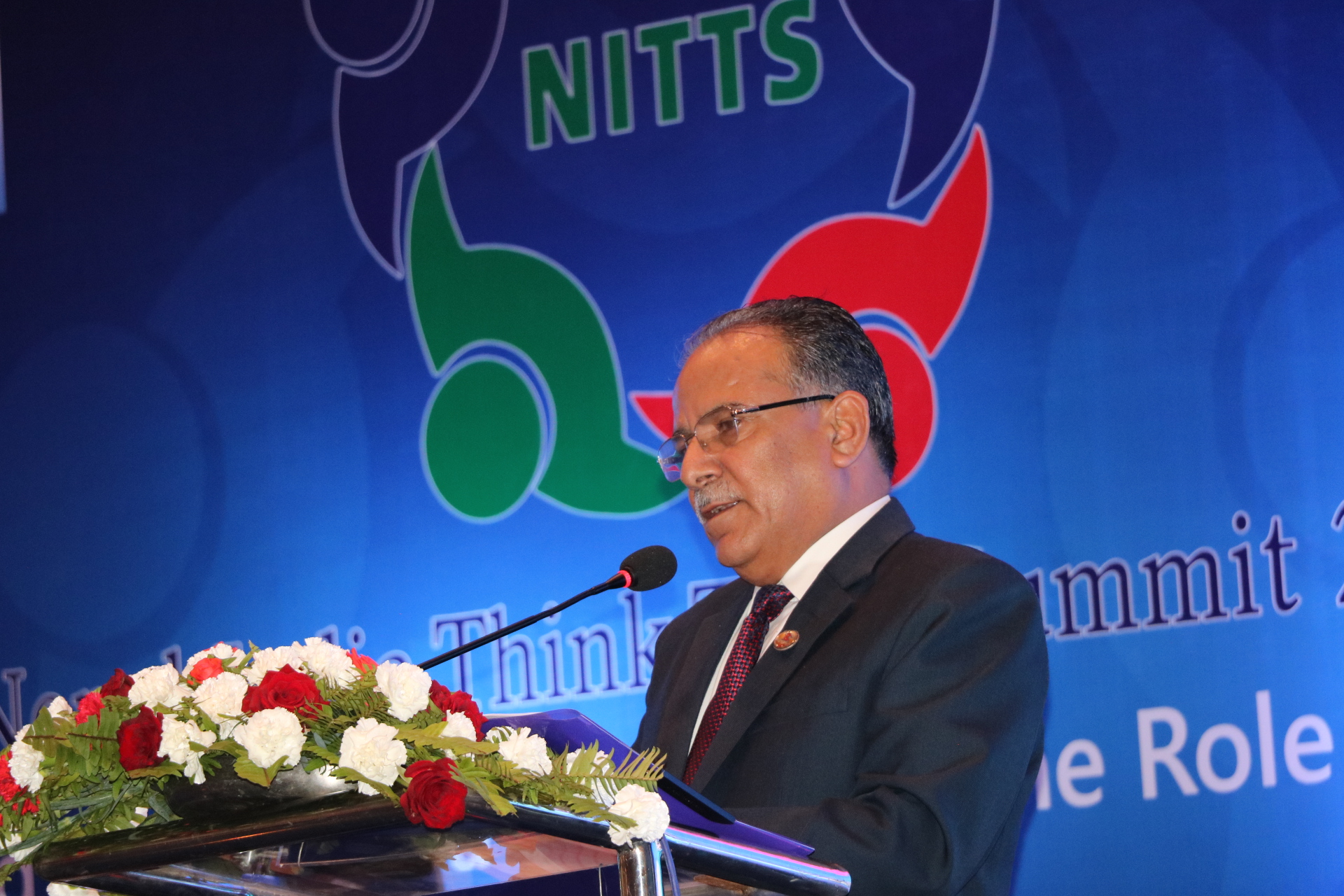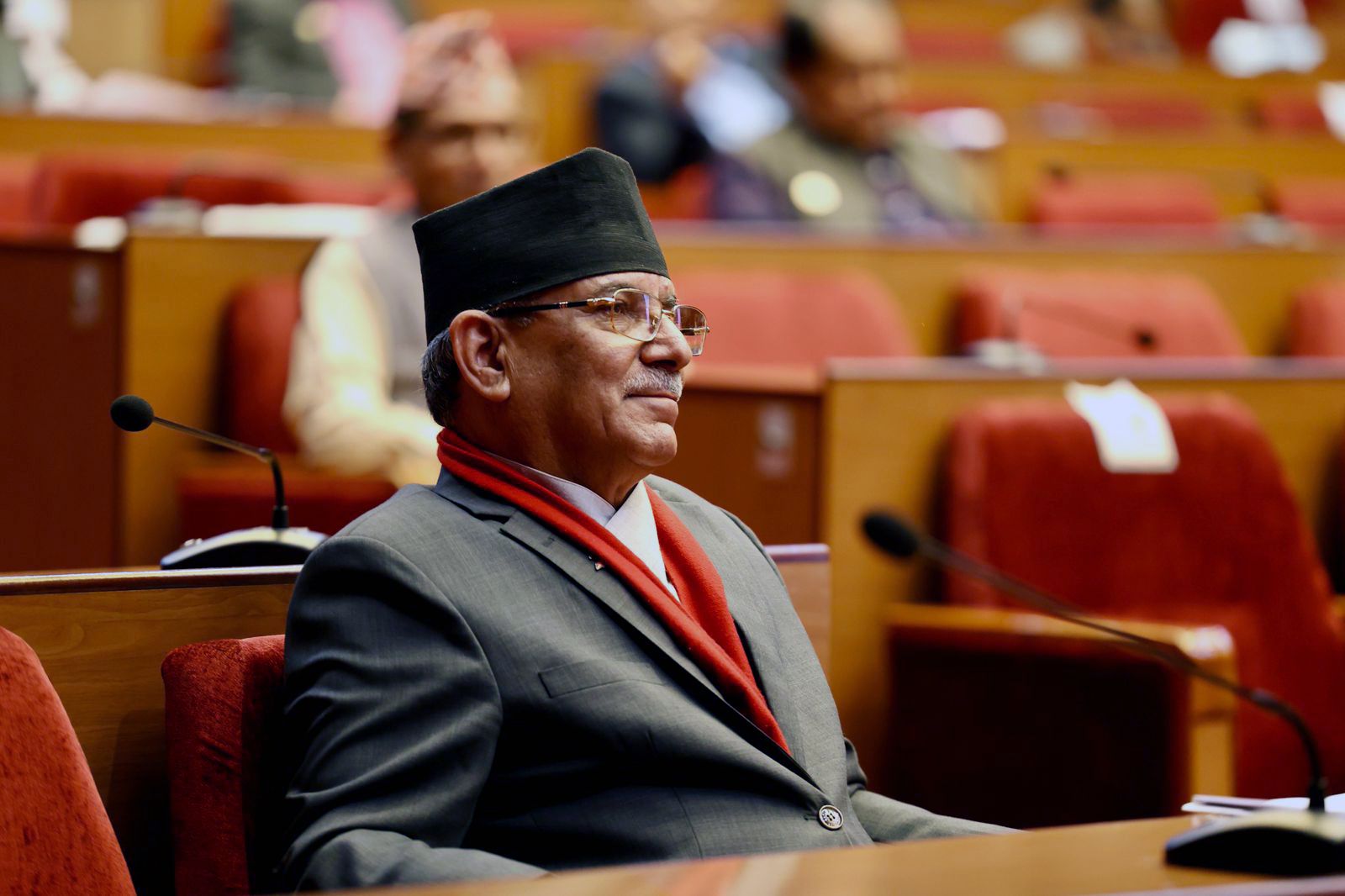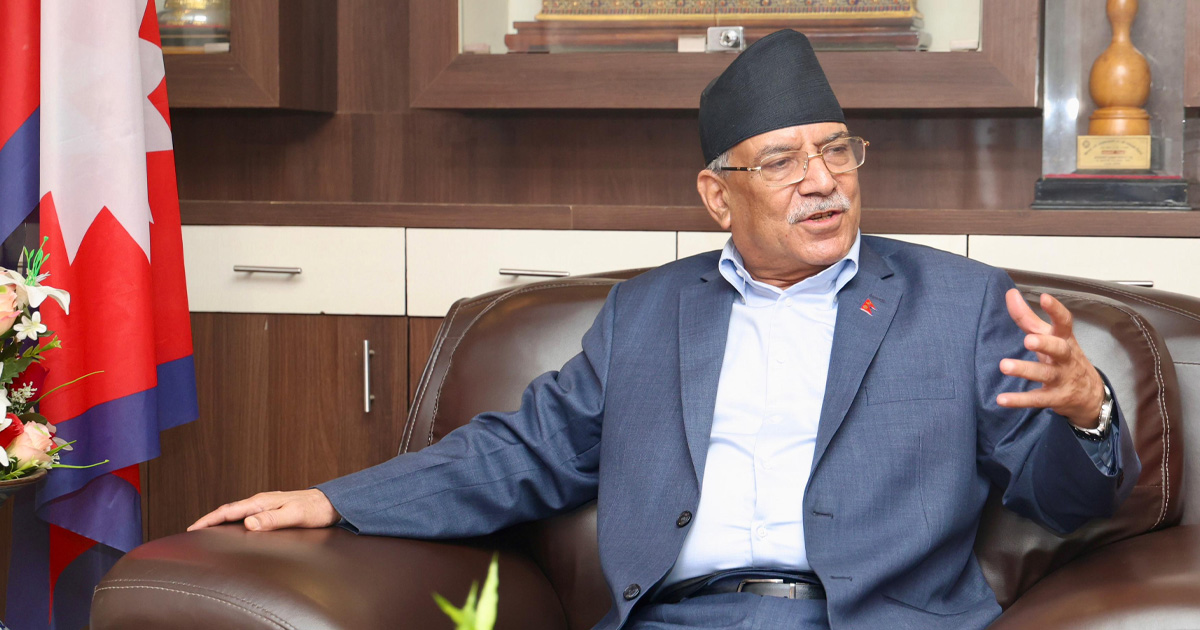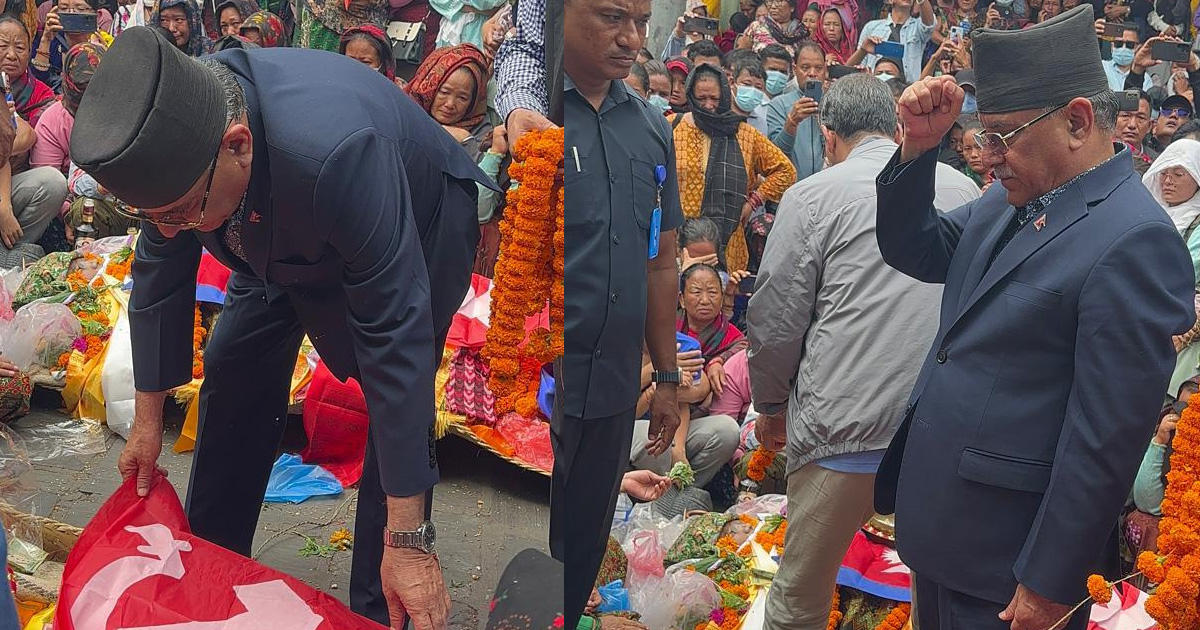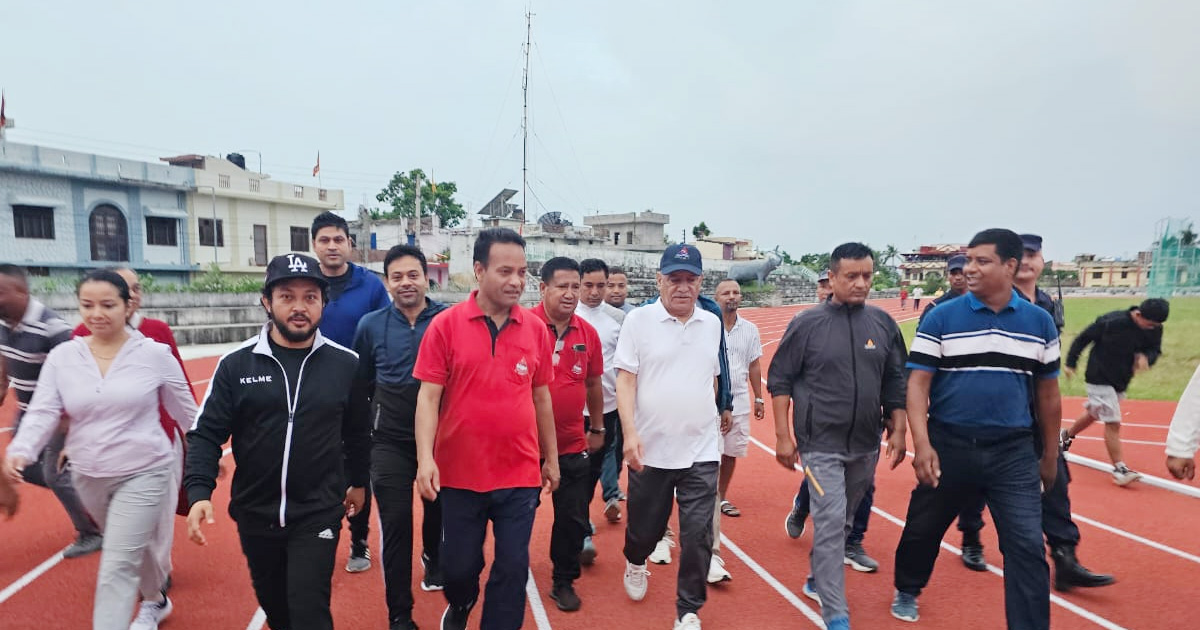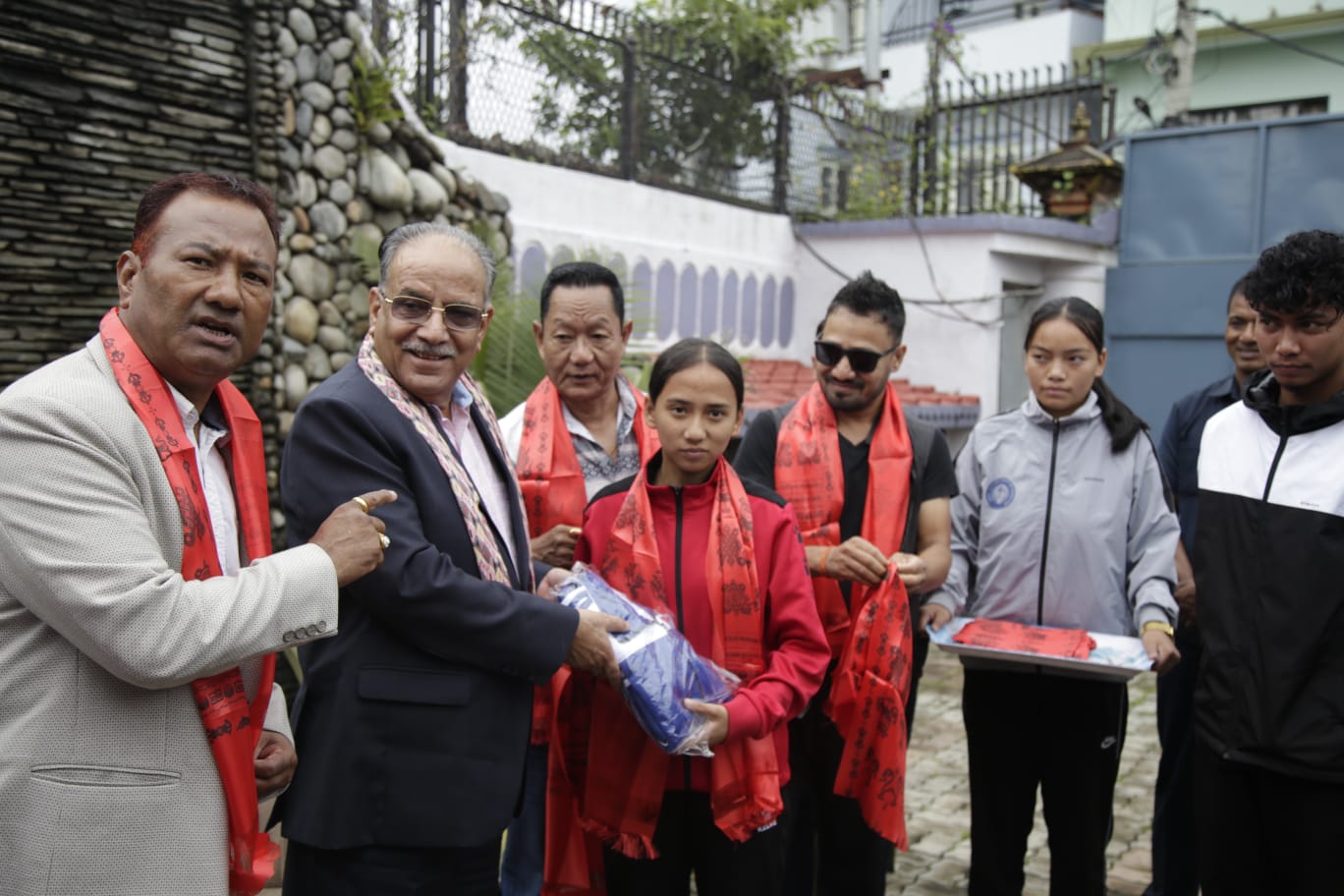- Promoting Nepal-India Relations: The Role of Think Tanks
H.E. Shri Manjeev Singh Puri, Ambassador of India to Nepal,
Shri Ram Madhavji, Director, India Foundation and National General Secretary of the Bharatiya Janata Party
Shri Shakti Sinha, Director, Nehru Memorial Museum and Library
Mr. Sunil KC, Founder/CEO, Asian Institute of International Affairs and Diplomacy
Excellencies, distinguished participants, friends from media, ladies and gentlemen:
It is certainly an honour and privilege for me to address this august gathering of intellectuals and eminent personalities. I wish to express my deep gratitude to the Asian Institute of Diplomacy and International Affairs and the Nehru Memorial Museum Library for giving me this opportunity. I would also like to commend both of the organizers for coming up with this brilliant idea of bringing research institutions together and hosting this think tank summit on such an important theme.
The past few months have witnessed major developments in Nepal-India relations. India welcomed the outcome of the federal, provincial and local level elections and expressed its desire to work closely with a new government in Nepal, which has received a strong mandate from the people. This development has had a positive bearing on Nepal-India relations. The leaders in both countries seized the opportunity to advance bilateral relationship with renewed vigour and commitment.
The recent visit of Prime Minister Oli to India, and the subsequent return visit of Prime Minister Modiji to Nepal, have created a fresh momentum in the overall spectrum of bilateral relations between our two countries. I am happy to note that all the agreements and understandings reached between the two countries will now be implemented in a time-bound manner. Timely implementation will, in turn, bolster the credibility of our collaborative efforts and pave the way for yet larger collaborative efforts in mutually beneficial areas. This initiative has already generated a new wave of enthusiasm in Nepal. I have also been informed that all bilateral mechanisms are actively engaged in executing the directives given by the two prime ministers with a view to translating commitments into outcomes.
I thank you, Ambassador Puri, for your strong role in facilitating this process.
Against this backdrop, the theme you have chosen for deliberation today is both timely and relevant.
Distinguished participants:
In today’s increasingly interconnected society, the opinions of individuals and institutions do matter and have the potential to influence the decision-making process. Think tank organizations across the globe are building networks through which they generate new and innovative ideas, analyses and different points of view. On many occasions, the ideas they propose have been taken up through political processes and translated into policy.
The important role of experts and research institutions has long been recognized in all democratic societies. Chatham House, the London-based think tank on foreign policy and the Brooking Institute in the United States, to name a few, are pioneers in terms of both their size and reach. In our own region, think tanks have led initiatives such as the Raisina Dialogue and the Shangri-La Dialogue. These initiatives have been providing a platform for the exchange of ideas among international participants from the realms of politics, diplomacy, academia and journalism.
At the national level, we have also received help from the expertise of individuals, groups and institutions on many occasions to look into important issues and suggest solutions. Most recently, the governments of both Nepal and India entrusted the EPG-NIR with the responsibility of reviewing all aspects of Nepal-India bilateral relations and suggesting practical recommendations. The EPG-NIR, I believe, will be ready to submit its report to both governments soon.
For think tank organizations smaller in terms of size and resources, I see two ways to be visible and relevant. One is to continue objective deliberation on contemporary issues and the other is to develop expertise on core issues.
Distinguished participants:
Our two countries and people are connected by geography as well as history, by socio-cultural values as well as traditions. Nepal-India relations are deep as well as extensive and surpass the formal diplomatic relations.
These relations are age-old, sanctified by the wisdom of saints and sages, and constantly nurtured by deep-rooted people-to-people relations. The depth of our relationship cannot be fathomed merely through the formal relations between the two governments. The beauty of our relationship is that both formal and informal relations exist between the political, economic, and social institutions of our two countries. This event today is itself an example of such relations.
Nepal and India both have given priority to relations with neighbouring countries. This naturally puts neighbourhood diplomacy at the centre stage of our foreign policy orientation. The nature of the relationship between neighbours differs from that of other relationships, and such relationships cannot be conducted successfully without fully respecting each other’s sensitivities and aspirations.
Respect for and observance of such fundamental principles as sovereign equality, mutual benefit and non-interference in each other’s internal affairs is essential to building and enhancing trust and promoting goodwill, understanding and cooperation. Our two countries have reposed faith in the Charter of the United Nations which is founded on these principles. Moreover, as both of our countries espouse South Asian values, including the philosophy of Vasudhaiva Kutumbakam, how could one think of not respecting and practicing the core human values of justice, equality and respect? Why have I highlighted this? It is because our two countries have seen value in these principles as a solid framework for conducting inter-state relations.
Nepal and India are two such neighbours for whom there are no alternatives to perpetual peace and harmony. Nothing can be more important than a peaceful coexistence. Both countries are interdependent in many domains, from ecological to commercial, irrespective of their size and capacity. Thus both need each other’s support and cooperation. This fact needs to be understood in the context of our overall relations and cooperation. A peaceful, stable and prosperous Nepal is and will be in India’s interest. This is not merely a theoretical proposition but has practical consequences in our day-to-day life. Likewise, we need a peaceful neighbourhood to develop and grow. Prosperity cannot be achieved in insolation in today’s interconnected and interdependent world. It can only be achieved and sustained as an outcome of shared commitments and efforts.
I am of the view that each of us present here has a responsibility to promote understanding and cooperation between our two countries and peoples. We should look to the future with an open and progressive mind-set, learning from the past to ensure that 21st century Nepal-India relations are qualitatively different and are tailored to serve the interests of both countries in a mutually beneficial way. It should be a partnership that befits our intimacy and shared destiny.
Our friends from think tanks and research institutes could devote their time, energy and resources to suggest practical ways and means to bring Nepal-India relations to new heights of mutual satisfaction, consistent with the trends of our time and the aspirations of our two peoples.
Dear participants,
India has been a long-standing partner in the development efforts of Nepal. Some new areas of cooperation have been added after the recent exchange of high-level visits to the already existing multifaceted bilateral relations between the two countries. Connectivity is key to development, and even more so for a landlocked and least developed country like Nepal. I believe that the new railways and waterways networks, together with the more diversified airways, roadways and motorways, would be game changers for Nepal’s economic development.
When we talk about connectivity we tend to think only in terms of physical connectivity involving mainly railways, roadways, transmission ways and waterways. But connectivity must be understood in a broader sense. It should be seen as a key enabler in promoting relations between countries through a variety of means: connectivity of ideas, connectivity of markets, connectivity of people, connectivity of culture, connectivity of technology, and so on.
I urge the think tank organizations represented here today to focus their research on these newer areas as well. The astounding strides made in industrial development, the inspiring examples unleashed in the field of innovation and invention, the pioneering progress in IT, and remarkable pace of economic growth are all set to put India firmly at the global forefront. Our bilateral relationship should be expanded and consolidated in a way that enables Nepal to benefit from India’s unprecedented progress and prosperity. We need research-based inputs and informed suggestions towards this end.
Being a resource-rich country with a majority working-age population and surrounded by big markets and big economies in the neighbourhood, Nepal has the prerequisites for development. Nepal can no longer afford to be a poor country when our neighbours and the rest of the world are make incredible progress in every sphere of life. In the past, Nepal greatly suffered due to conflict and political instability. Now, the enabling environment for development has been achieved: we have a stable government; rule-based democratic institutions; an abundance of resources, both natural and human; and tremendous goodwill and support from the international community. We aspire to graduate from the LDC status at an early date and become a middle-income country by 2030, which is also the deadline for achieving the Sustainable Development Goals. What we need now are a long-term vision for development, able institutions, adequate resources, and concerted efforts from all quarters for economic growth and development.
Distinguished participants:
With the conclusion of the peace process and the successful holding of elections to all three tiers of government, we now have a stable government in place. Looking ahead, our topmost priority is economic transformation. The Prime Minister has coined the motto ‘Prosperous Nepal, Happy Nepali’ to accelerate the pace of development. Nepal has tremendous potential for development in hydropower, tourism, agriculture, information technology, and infrastructure. In these areas, cooperation and collaboration between the two governments is essential for achieving the desired results. Nepal welcomes more investment, tourists, and transfer of technology from India. Nepal is seeking a favourable trading environment with India so that its ballooning trade deficit can be reduced to a manageable level. Progress in these areas can change the economic face of Nepal. Think tanks should explore innovative policy ideas and suggest concrete recommendations to help realize these objectives.
Sustaining recent political gains and meeting the aspirations of our people requires strong cooperation and collaboration among principle political stakeholders. In recognition of this fact, we took the big political step of unifying two major communist parties into a single strong political force. We are committed to bringing about visible changes in the lives of our people through our collaborative efforts. I call upon all segments of society represented here today to contribute to the best of your ability to realizing our common dream of dignity and economic prosperity for our people.
In conclusion, with such a distinguished panel of speakers from research institutions, academia, the business sector and the media, I trust that the Nepal-India Think Tank Summit 2018 will be a great success and that the outcome of the summit will offer creative, pragmatic and actionable recommendations in further promoting all facets of Nepal-India relations in the days ahead.
Thank you.
( Address by Hon. Pushpa Kamal Dahal ‘Prachanda’ former Prime Minister of Nepal and Chairman of Nepal Communist Party at Nepal- India Think Tank Summit 2018 || Kathmandu, 31 July 2018)
 क. प्रचण्ड
क. प्रचण्ड
